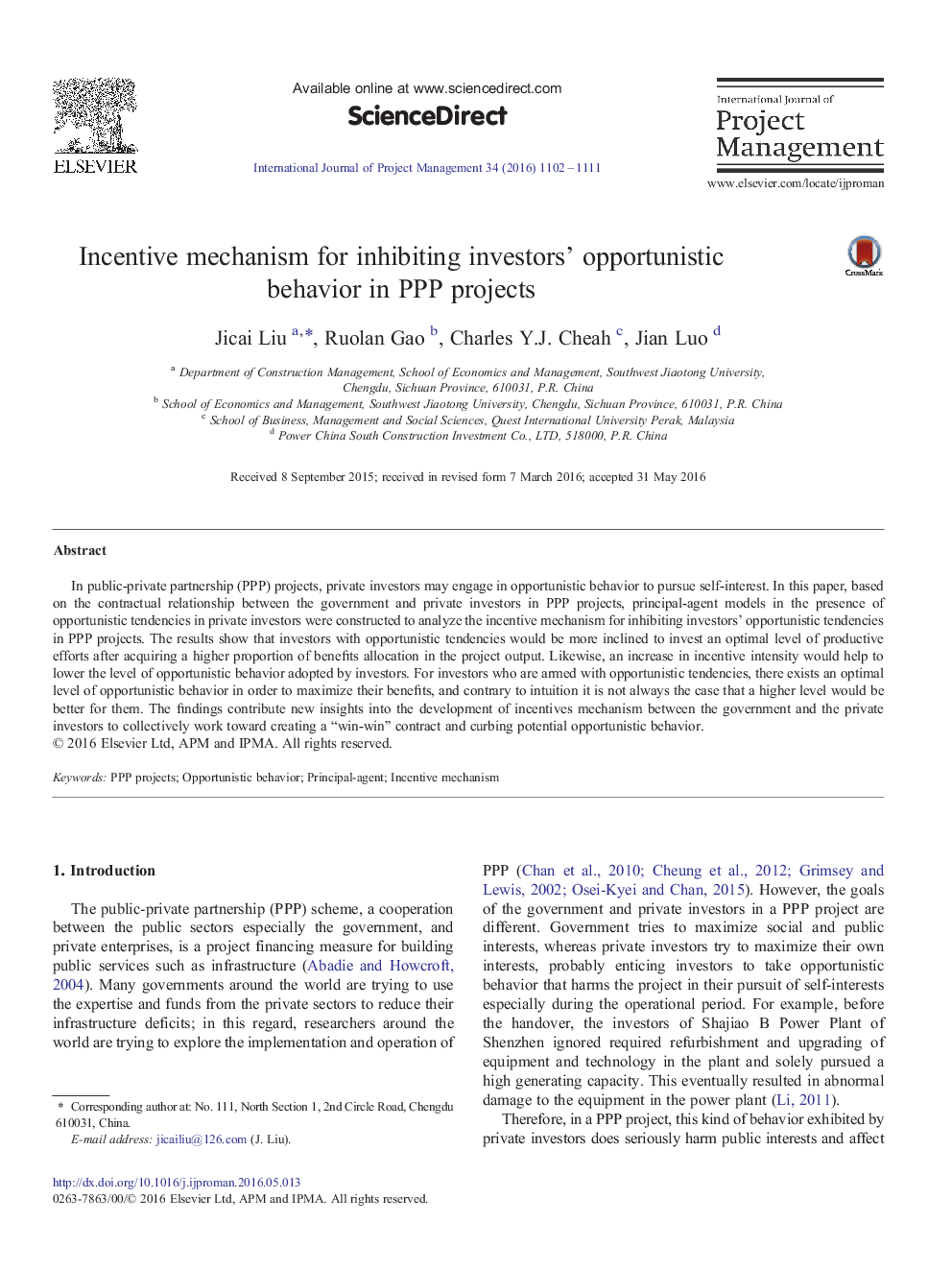| Article ID | Journal | Published Year | Pages | File Type |
|---|---|---|---|---|
| 275653 | International Journal of Project Management | 2016 | 10 Pages |
•Contractual relationship between government and investors in PPP was the basis.•Impact of opportunistic tendencies on the benefits distribution was analyzed.•Principal-agent models in presence of opportunism in investors were constructed.•Two sides should move to a win-win contract to curb potential opportunistic behavior.
In public-private partnership (PPP) projects, private investors may engage in opportunistic behavior to pursue self-interest. In this paper, based on the contractual relationship between the government and private investors in PPP projects, principal-agent models in the presence of opportunistic tendencies in private investors were constructed to analyze the incentive mechanism for inhibiting investors' opportunistic tendencies in PPP projects. The results show that investors with opportunistic tendencies would be more inclined to invest an optimal level of productive efforts after acquiring a higher proportion of benefits allocation in the project output. Likewise, an increase in incentive intensity would help to lower the level of opportunistic behavior adopted by investors. For investors who are armed with opportunistic tendencies, there exists an optimal level of opportunistic behavior in order to maximize their benefits, and contrary to intuition it is not always the case that a higher level would be better for them. The findings contribute new insights into the development of incentives mechanism between the government and the private investors to collectively work toward creating a “win-win” contract and curbing potential opportunistic behavior.
